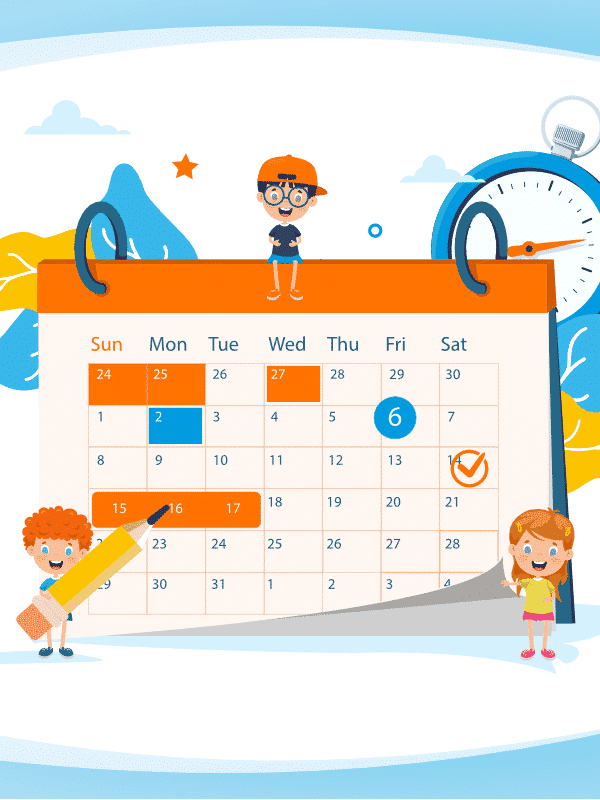Here’s a situation that will likely sound familiar to any parent who’s helping their kids learn Spanish: You ask your child a question in Spanish. They respond — but in English. Why is this happening? And how can you get them to answer you in Spanish? Let’s tackle both of those questions today.
First, the “why.” Kids may balk at responding in Spanish because they feel shy or nervous. Maybe they don’t know the words they need to express what they want to say. Or maybe they do know, but their mind just goes blank when you speak to them in Spanish.
Next, let’s talk about solutions. You don’t want to let this issue slide, because it could seriously hamper all the work your kids (and you!) are doing to build their Spanish skills. But, on the other hand, you don’t want to turn Spanish conversation practice into a stressful, unpleasant event for them.
So how can you encourage your children to respond in Spanish without making them feel stressed or pressured? Here are our proven strategies.
1. Allow Them More Time to Respond in Spanish
Sometimes getting your kids to respond in Spanish just comes down to giving them a little more time to think. Micah Bellieu, our founder and CEO, has even encountered this as she helps her young daughter become multilingual.
When Micah asks her daughter whether she remembers a word in French, she automatically says no. But then, five seconds later, she’ll say the word.
(While Micah’s experiences here involve helping her daughter with French, the takeaways hold just as true for kids learning Spanish — or any other language.)
Even though you might be tempted to rush in and give your kid the Spanish word they need, hold off for a moment. As they search their brain for the word, they’re creating new neural pathways that will help make speaking and understanding Spanish second nature for them.
2. Supply the Spanish Words They Don’t Know
If your kid is still not able to respond in Spanish after you give them an extra moment to think, sometimes it’s best just to supply the word or words they need.
No, this isn’t a copout. If your child is new to Spanish, or if the two of you are talking about a subject for which they don’t have an extensive Spanish vocabulary yet, expect to give them words they don’t know until they get a little more comfortable.
Also keep this strategy in mind when one or both of you are busy, tired or cranky. It’s better to give your kid a word or two to keep the conversation going in Spanish instead of just giving up and speaking English.
Here’s an example of how this conversation might go:
- Your kid: “Mamá, quiero un pear.”
- You: “¿Quieres decir ‘pera’?”
- Your kid: Sí, mamá. Quiero una pera.
In this exchange, your child is asking for a pear. They know most of the words needed to make their request, but they don’t know, or don’t remember, the Spanish word for “pear.” So you ask them, “Did you mean to say ‘pera’?” They respond, “Yes, Mom. I want a pear” — but this time they say every word in Spanish.
3. Give Them a Hint About the Spanish Words They Need
Instead of just telling your kid the Spanish word they need, you could try to help them recall it by giving hints. For example, tell them the letter the word starts with, ask them questions about the word they need, or give them synonyms for it.
This strategy promotes even further learning. And it helps them use another similar word, even if they can’t find the exact word they want.
Give Your Child the Gift of Spanish!
4. Help Them Find the Answer Themselves
This strategy helps your kids learn not just Spanish, but also some important life wisdom: It’s OK not to know something! That doesn’t mean you can’t find the answer.
With her daughter, Micah is imparting the lesson that she doesn’t have to get frustrated when she doesn’t know a word. Instead, she can follow this process:
- Admit she doesn’t remember or doesn’t know the word.
- Then try to find a synonym for that word.
- Finally, research the answer using a dictionary or reliable online sources. (Bonus tip: Get a huge picture dictionary that categorizes words by themes: kitchen, getting ready in the morning, etc.)
Hunting down the answer themselves stokes your kid’s curiosity and builds their confidence that they can figure out things they don’t know. Micah’s daughter now asks for a book to find words doesn’t know. Or she asks Micah: “Do you need to look it up, Mom?”
5. Have Them Ask Someone Else
Your kids can also take a more relationship-based approach to researching words they don’t know. Ask them to think about who might be able to help them. The answers might include:
- A Spanish-speaking relative.
- A sibling who is farther along in their study of Spanish. (By the way, this is a great learning experience for the sibling, too.)
- A friend from Spanish class at school or private Spanish lessons.
This approach gives them a memorable experience that helps cement the Spanish word they were seeking in their mind. It also builds connections with others.
Repetition Builds Spanish Fluency
No matter which one of these strategies you choose, after your kid finds the Spanish word they were looking for, the next step is always the same. Incorporate that word into your conversations later that day, week, etc. This helps ensure they won’t forget it again.
A Fun Way to Practice Spanish
We hope these tips help your kids learn Spanish faster and help you both enjoy some fun Spanish conversations together. To give your kids even more Spanish practice, check out our online immersion classes.
In each class, your kids will have fun while building their Spanish vocabulary. They’ll use Spanish as they enjoy activities like singing, dancing, crafting, playing games, reading and cooking. There are no boring moments with us!
All classes are taught by native speakers and are built around the proven Bellieu Method, which helps kids develop Spanish conversational skills for real life through speaking practice.
Take a 30-minute trial class now! There are no more than four to six students per trial class. After the class, you’ll get the chance to join a parent session where you can get answers to any questions.


